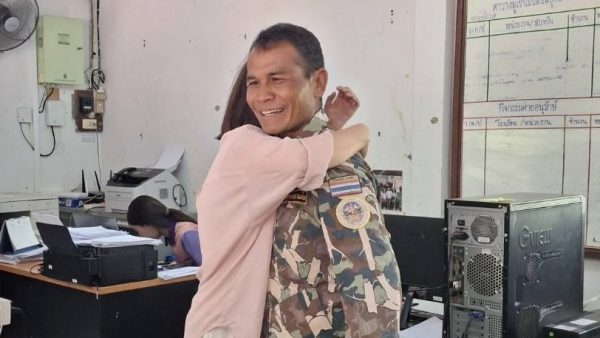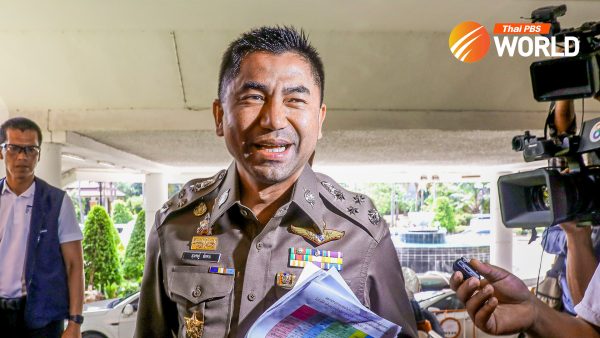Hero of Tham Luang cave rescue rises to Covid-19 challenge

The northern province of Lampang has finally been hit by Covid-19, despite the best efforts of its famous governor, Narongsak Osotthanakorn.
“When I heard of the first Covid-19 infection in my province, I almost cried,” the governor admitted at a recent press conference.
Narongsak’s name will ring a bell among Thais, and probably quite a few foreigners, given that he led the mission to rescue 13 young Moo Pa (Wild Boar) footballers from the flooded Tham Luang cave in Chiang Rai province in 2018. Conducted under the eyes of the world media, the over-two-week operation ended in a stunning success when all 12 boys and their coach were rescued alive.
In the eyes of many, Narongsak was a hero. His leadership, hard work, clear-cut communication and efforts to coordinate all involved played a vital role in the rescue – which has since been chronicled in several books and films.
Lampang locals were hoping his skill and wisdom could shield them from the wrath of the deadly new coronavirus.
Up until April 2, Lampang’s prospects were promising. It ranked among only 15 of 76 Thai provinces that had managed to stay clear of Covid-19 infections.
Narongsak revealed that he began making preparations to fight off the pandemic on January 23 – the day China’s Wuhan launched its own lockdown to contain the outbreak.
“Worried that the virus might also spread to Thailand, I began talking to people and hospitals to take preventive measures, resources and more,” he recounted.
Preparations in Lampang – which included clear public communication to win cooperation from locals – kicked off even before Thailand discovered its first Covid-19 case on January 26.
After learning from other hard-hit areas that severe Covid-19 cases needed ventilators, Narongsak ordered a count of the devices in Lampang. Finding the province only had 40 ventilators, he secured 30 more just in case.
“I have also procured 300 personal protection kits for those who may be exposed to the virus as part of their work,” he added.
He also checked out local hospitals’ negative-pressure rooms, where infectious patients can be isolated, to determine if Lampang had the capacity to deal with the Covid-19 threat.
“There were just 10 negative-pressure rooms in the province. But with adjustments made to ICU beds, Lampang now has the capacity to handle up to about 400 [Covid 19] patients,” Narongsak said.
The governor was hoping that Lampang – which was among the best-prepared provinces – would elude the Covid-19 outbreak and not need to send anyone to a negative-pressure room.
That hope was shattered at 5pm on April 3 with the discovery that a woman had unknowingly returned from Bangkok to her home province carrying the virus. The woman – a vendor at a bustling Bangkok market frequented by foreign visitors – had developed symptoms of a sore throat and headache on March 17. Three days later, she flew from Bangkok to Chiang Rai, before boarding a van to her hometown in Lampang’s Ngao district.
She then isolated herself on the second floor of the family home, with only her mother allowed upstairs to bring her food. But that precaution failed when the mother ended up catching the virus and then passing it on to an elderly relative.
“We have closed off their village to prevent any further spread,” Narongsak said.
While admitting it was hard to accept the contagion had reached Lampang despite the tireless work of officials and strong cooperation from locals, the governor said he took comfort in the fact that the source was not a local resident.
“Had it been a local resident, that would have suggested that stringent measures already in place are inadequate,” he said. “But as the infectious case came from Bangkok, I am convinced that our hard work in the past few months was not completely wasted.”
Narongsak is now rallying his officials and locals for another big push. “Our goal now is to make sure that the number of Covid-19 cases in Lampang does not increase,” he said.
Most Lampang residents now wear face masks in public, while non-essential shops have been temporarily closed in line with Covid-19 control measures as locals follow the lead of their provincial chief.
Now in his late 50s, Narongsak was born and grew up in Chachoengsao province. He moved to Bangkok for school and graduated from Kasetsart University with a bachelor’s in engineering in 1985.
His constant thirst for knowledge nudged him into enrolling on other courses. As a result he now boasts bachelor degrees in law, technology and public administration from Sukhothai Thammathirat Open University. Narongsak also holds a master’s in survey engineering and geographic information from Ohio State University.
Before taking the helm in Lampang, Narongsak served as governor in Chiang Rai and Phayao. Throughout his career, he has built a strong reputation for integrity, courage and honesty. He is married with two children.
By Urisara Kowitdamrong






